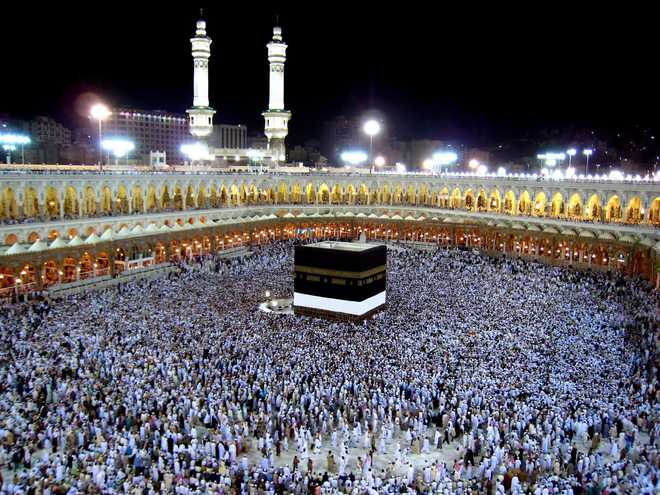by Sajid Raina
SRINAGAR: Before 7 AM on June 10, 2024, Shafeeqa Bagum (36) roused his son from a deep sleep, saying that the sheep appeared thirsty. Anzar (17), his son, was startled and promptly rushed to the cowshed with water for the sheep they were preparing for sacrifice on Eid-ul-Adha.

“Drink water, my lion,” Anzar softly said, “I would sacrifice everything for you.”
Shafeeq closely observed Anzar’s deep attachment to the animal, especially since their family in the Arin area of Bandipora district had chosen it for sacrifice on Eid-ul-Adha.
“For the past five months, he’s neglected all other chores, pouring his attention into this sheep. He washes it meticulously each day, sometimes even adorning its body with colour as he lovingly garlands it,” his mother said.

Every day, he tells me, “Mumma, I can’t bear its sacrifice,” but I reassure him, explaining the significance of animal sacrifice on Eid.
The act of sacrificing livestock, such as sheep, goats, and cows, during Eid al-Adha originates from a story in the Quran involving Prophet Ibrahim (Abraham in the biblical tradition).
According to the story, Ibrahim was commanded by Allah to sacrifice his son Ismail.
This commandment represented the ultimate test of faith and obedience to God for Muslims. However, at the last moment, the angel Gabriel intervened, replacing Ismail with a ram.
Muslims commemorate this story through Qurbani, which is obligatory for those who can afford it. Muslims consider this tradition a “sunnah” practice, initiated by Prophet Muhammad himself.

The emotional story extends beyond Shafeeq’s family to encompass not only Jammu and Kashmir but also resonates across Muslim nations.
Mushtaq Ahmad, a 55-year-old father, comforts his young son, explaining that the sheep they are preparing to sacrifice on Eid-ul-Adha will return to Allah, as it is only with them until the day of Eid.
Mushtaq’s son Azaan, 18, cherishes the animal dearly, especially since his family decided it would be sacrificed on Eid. They took extra care of it, which deepened Azaan’s affection even more.
He mentioned that his son was saying he couldn’t bear to watch the sacrifice when the time came. But the story of Ibrahim and Ismail teaches us about faith and obedience. It’s a tradition Muslims uphold each Eid.
“We’ve been caring for this sheep for months now. Washing it daily, sometimes decorating it with colours, all to prepare it for the sacrifice,” he added.
“Once we will sacrifice it, I’ll miss it very badly,” he said.

A couple of weeks before Eid-ul-Azha, Eidgah ground transforms into Srinagar’s largest market, where a diverse array of animals are up for sale.
Sheep, goats, cows, buffaloes, and sometimes even camels draw crowds of people, often with children in tow, seeking the best deals on sacrificial animals.
Apart from striking deals, the ground witnesses a myriad of emotions during the bargaining for these animals.
While some people shed tears bidding farewell to their animals after bargaining, others wear smiles as they receive theirs as many people are purchasing sacrificial animals just days before Eid-ul-Adha.
In Sopore’s Apple Town, Suliman, an elderly shepherd from Bandipora, sells sacrificial animals with deep emotion. With each bargaining, he advises buyers not to waste any part of the mutton but to honour it by consuming it respectfully.
“Bury the bones even with utmost respect,” he advised them solemnly.














